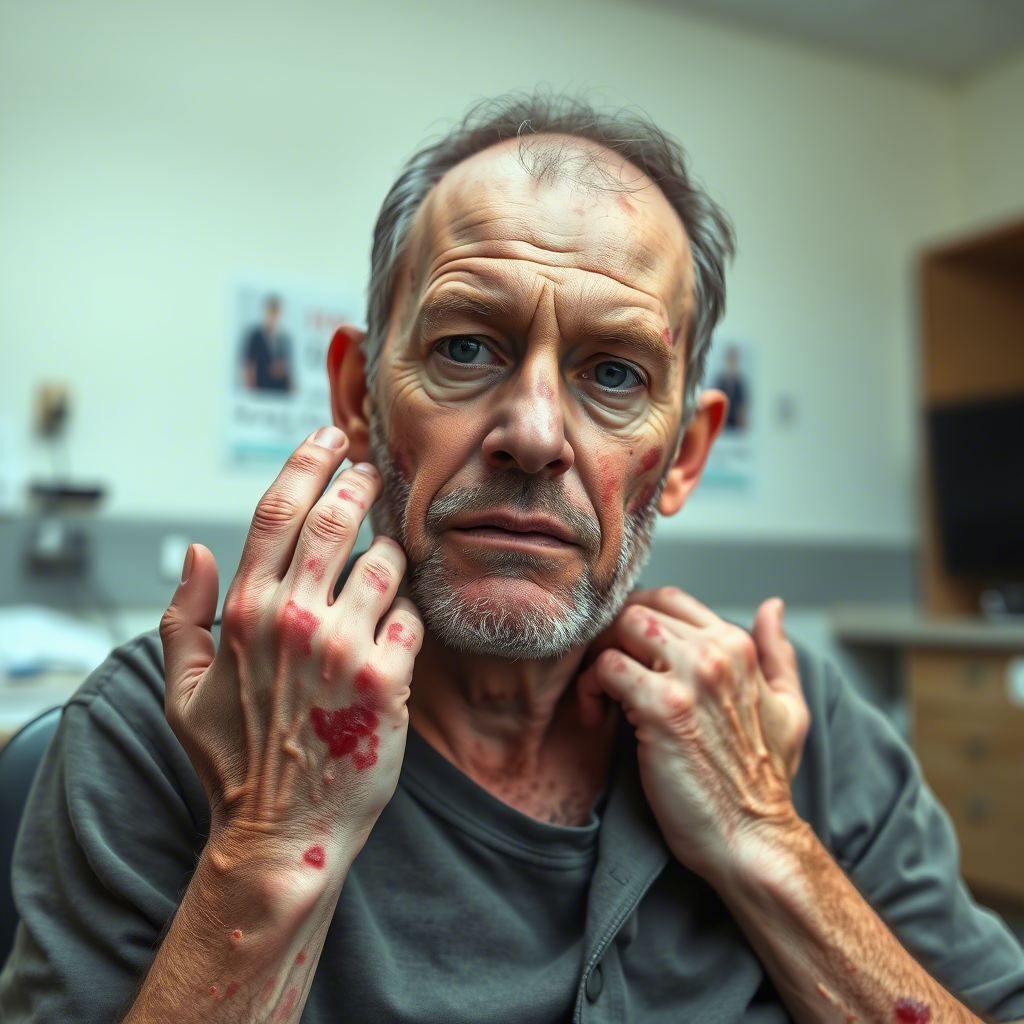Wait, What’s Going On with Mpox Now?
You know how some things just seem to vanish... and then suddenly show up again when you least expect them?
That’s mpox for you.
Just when the world started focusing on post-COVID recovery, a different virus quietly crept back into the spotlight. And this time, it's making a lot more noise than before.
Mpox, formerly known as monkeypox, isn't just a rare zoonotic disease anymore. It's evolving, spreading, and yep—becoming a serious public health concern again.

A Quick Recap (Because Who Really Remembers 2022?)
Remember 2022? That’s when mpox first started showing up in places it wasn’t supposed to—outside Africa, in cities like London, Madrid, and New York. At first, people thought it was a fluke. But then the cases kept piling up.
Turns out, a new strain (clade IIb, for the science nerds out there) was spreading through close human contact, especially sexual networks. It went global fast.
Now, here’s the kicker. In late 2023, another strain—clade Ib—started spreading. And this one? It's even sneakier, moving through households, families, communities… basically, anywhere people interact closely.
The Epicentre: Where It All Began (Again)
Let’s talk about the Democratic Republic of the Congo (DRC)—the ground zero for this new outbreak. By August 2024, the virus had already spread to four neighboring countries.
Things escalated quickly:
- Africa CDC declared a Public Health Emergency of Continental Security
- WHO called it a Public Health Emergency of International Concern
By early 2025, mpox had hit 60 countries, with most of the cases and deaths coming from—you guessed it—Africa.
Real Talk: What Does Mpox Feel Like?
Let me tell you something real—mpox isn’t just a rash and fever kind of illness. I spoke to a friend in Nairobi who got it in early January, and he described it as “a week of pure hell.”
We're talking about:
- Painful skin lesions
- Mucosal ulcers (yep, even in your mouth or down there)
- Fever, back pain, swollen lymph nodes
- And an overwhelming sense of fatigue
“It wasn’t just the physical pain,” he said. “I felt isolated, scared... and like nobody really knew what to do.”
This isn’t just a health issue—it’s an emotional and psychological blow, especially in areas where access to care is limited.
So… What’s Being Done About It?
Glad you asked, because here's where things get interesting.
The Joint Plan by Africa CDC & WHO
These two health powerhouses just updated their Continental Mpox Response Plan—and it’s not just a band-aid fix.
They’re targeting 10 strategic pillars (this isn’t just PR speak, it’s solid groundwork):
- Coordinated outbreak control
- Risk communication (no more misinformation!)
- Disease surveillance
- Lab testing scale-up
- Clinical management protocols
- Infection prevention & control
- Targeted vaccination
- Research and evidence gathering
- Medical logistics
- Continuity of essential services
What’s Actually Working?
A few bright spots:
- Over 1 million vaccine doses delivered across 10 countries
- 650,000+ people vaccinated, 90% of them in the DRC
- Labs in the DRC expanded from 2 to 23 in just a year
- New rapid tests being rolled out for faster detection
Honestly, that’s impressive progress for a region often underfunded and overburdened.
But Let’s Not Sugarcoat It…
There are still some big, messy hurdles:
- Conflict and violence in eastern DRC make it really hard to respond effectively
- Cuts in global humanitarian aid are slowing everything down
- Over $220 million in funding gaps are holding back critical mpox efforts
If you've ever tried fixing a leaking roof during a thunderstorm... that’s what it feels like.
Why Should You Care?
Because mpox isn’t just "an African problem."
Just like COVID started in one place and swept across the world, infectious diseases don’t respect borders. They follow people. And in our ultra-connected world, we’re all just one flight away from the next outbreak.
Here’s the thing: what Africa learns, adapts, and builds today could save lives in Europe, Asia, or America tomorrow.
FAQs (Because You’re Probably Wondering)
Q1. What is mpox and how is it transmitted?
Mpox is a viral illness spread primarily through close physical contact, including skin-to-skin, sexual contact, or contaminated materials.
Q2.Is mpox deadly?
While not as fatal as some viruses, certain strains can cause severe complications, especially in people with weak immune systems or without proper care.
Q3. Is there a vaccine?
Yes. The smallpox vaccine provides cross-protection. Targeted vaccination campaigns are underway in high-risk areas.
Q4. Can mpox be treated?
There’s no specific cure, but supportive care and antiviral medications can ease symptoms. Early diagnosis is key.
(And a Little Heart-to-Heart)
Mpox isn’t just a medical issue—it’s a story of resilience, urgency, and the global need to step up. It’s about listening to communities, empowering health workers, and making sure no country is left to fight a crisis alone.
If there’s one thing we learned from COVID, it’s this: we’re in this together.
So, what can you do?
- Stay informed
- Support global health initiatives
- Share this article with someone who needs to know


